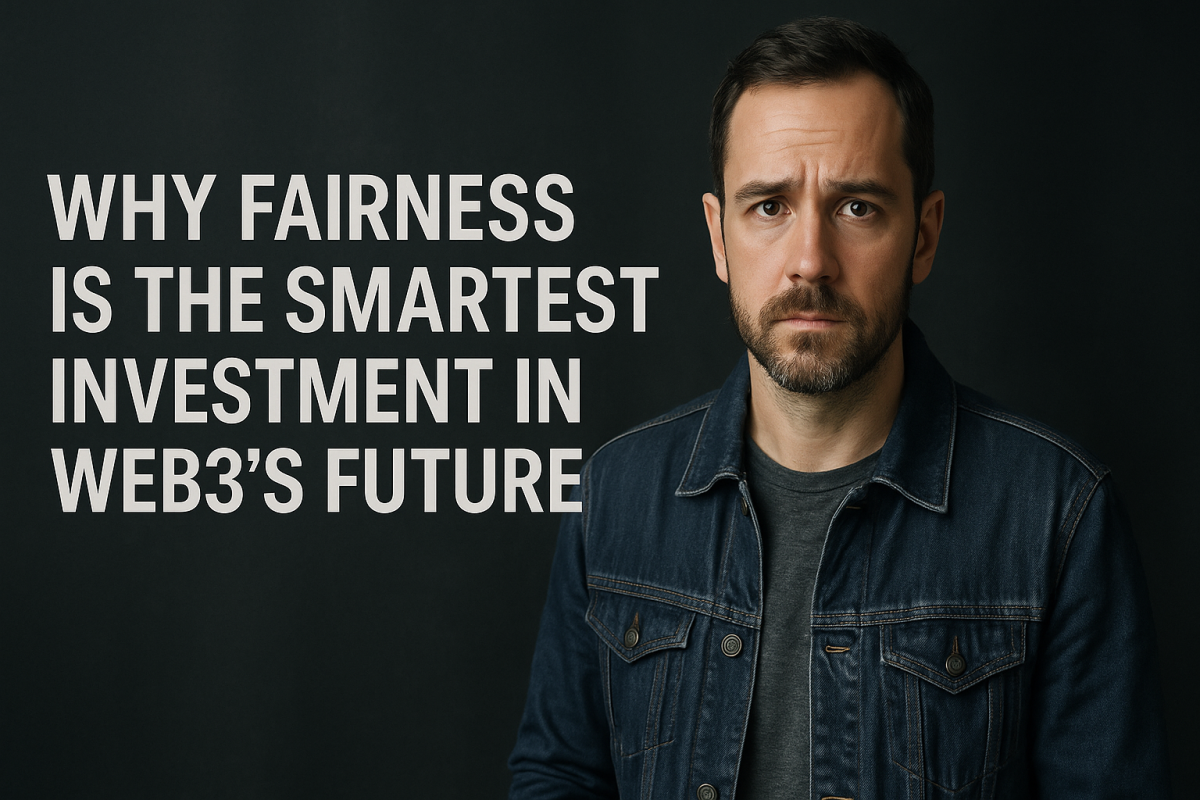Why Fairness is the Smartest Investment in Web3’s Future
If you didn’t know whether you’d be born into a wealthy family or one that struggles to pay for basic healthcare, wouldn’t you advocate for universal access to affordable services? It’s an easy question with a powerful answer: fairness makes sense when you don’t know where you’ll end up. Now, take this idea and apply it to the digital world. If you didn’t know whether you’d grow up with access to the latest technology or even reliable internet, how would you design the future of our digital lives?
I would say it’s obvious. Systems designed for everyone are stronger, more widely adopted, and ultimately more successful.
We’ve already seen what happens when fairness isn’t a priority. Look at social media platforms. They started with the promise of connection but ended up exploiting user data and prioritizing profits over people. Add the doom-scrolling and engagement trap, and I feel we are completely losing ourselves in the web.
Here’s what we can do! When systems are designed with fairness in mind, they don’t just work—they thrive.
Payday loan companies are a prime example of predatory lenders that exploit the poor. These companies target low-income individuals with promises of immediate cash, but their loans often come with annual percentage rates (APRs) exceeding 400%. Borrowers frequently fall into debt traps, as they are unable to pay back the loans on time, forcing them to roll over the debt and accrue even more fees. In contrast, blockchain-based microloan platforms offer a transparent and fair alternative, allowing borrowers to access small loans without the crushing interest rates and exploitative practices of traditional payday lenders.
Remember, a loan doesn’t just help the farmer—it feeds their family and strengthens the community. That is only one example of how important fairness is in creating Web3.
But fairness doesn’t happen by accident. It requires deliberate design. We could use philosopher John Rawls’ practical framework for this: the veil of ignorance.
Although it’s a broad philosophy, it should be used for Web3. It’s about designing Web3 without knowing your position in it. Easy, right? You wouldn’t know if you’d be an early adopter with resources and expertise or someone in a rural area with limited access to technology. From this perspective, fairness becomes essential because nobody wants to build a system they might be excluded from. Brilliant!
If we followed this approach, Web3 would look very different:
Accessibility would be a priority. We obviously need to build a web for everyday people, not for engineers. But I guess we have to start somewhere…
Governance would also be fair. Today, many Web3 platforms tie voting power to how many tokens you own. This means the richest participants get the loudest voice. A fairer system considers how smaller stakeholders can have a more proportional say and therefore ensures that decisions reflect the needs of everyone, not just the wealthy few.
And rewards would be equitable. Early adopters often get outsized benefits, leaving latecomers with little to gain. A fairer Web3 would reward meaningful participation, not just polarizing speach and speculation. Just like the internet has enough porn, degens have had too much control creating tokens and marketplaces for speculation…
I know fairness sounds idealistic, therefore let’s look at a real-world example of why it works in the real world.
In Kenya, the mobile money platform M-Pesa is not a web3 project but it has changed lives by providing financial services to millions who were excluded from traditional banking. I would say it’s a classic example of how designing for accessibility and inclusion doesn’t just solve problems—it creates opportunities.
”If fairness even works for a financial project built on the centralized traditional system, it certainly works for web3.”
… but only if we take fairness seriously.
So, just as the title of my book says, we need to ask ourselves, What kind of world are we building? I would like to end by reminding us that behind every wallet, every transaction, and every decentralized vote is a human story. And those stories deserve systems that serve them—not the other way around.

